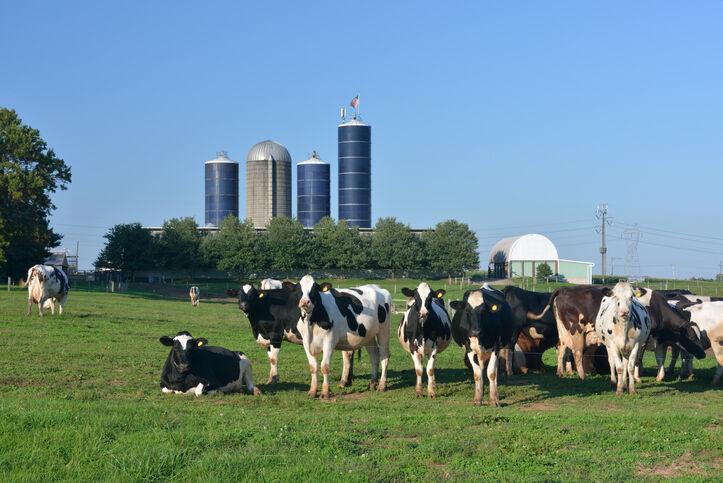
She wanted to know if milk from one of our family-owned Pennsylvania dairies is good milk because it costs $0.68 more per gallon than the chain-store brand where she usually shops.
She said she is willing to pay the extra costs to support Pennsylvania dairy farmers, although we suspect the extra money is kept at the retail level in most cases.
This marketing practice is fairly typical across the state and there is certainly not anything wrong with it as long as the retail outlet is selling its own brand at minimum retail prices established by the Pennsylvania Milk Marketing Board.
We have no authority to tell stores what to charge for milk as long as they do not sell below minimum prices, and I want to emphasize again that there is nothing wrong or illegal with a store selling its own milk at a lower price than milk purchased from an outside processor.
The question for us, as well as anyone else involved in the production and processing of fluid milk beverages, is, “How do we convince our family, neighbors and friends that it is OK and there are good reasons to pay more for milk that comes from Pennsylvania cows and is processed in a location not too far from where they live?”
From the time the farmer milks a cow, it takes about two days to see the packaged milk on a store shelf at a minimum. It could take more, especially if the milk is being brought to a retail outlet from another state.
One of the special things about the Pennsylvania dairy industry is that we have over 30 fluid milk processing plants located in various regions of the state, and they supply milk products to their local and regional sales outlets.
Our dairy processors maintain a clean, controlled environment for milk from the time it is picked up at the farm until it arrives on the store shelves.
All Pennsylvania milk containers are stamped with a “sell by” date that is currently 17 days from the date of processing. Legislation has been introduced and passed in the state Senate that would change the wording to “best by” instead, as milk can be consumed after the sell by date, a fact not understood by many consumers.
On a side note, legend has it that the infamous mobster Al Capone had a role in the implementation of sell-by dates on many packaged foods sold in the U.S.
According to Smithsonian magazine, a park ranger at Alcatraz said that one of Capone’s relatives got sick after drinking some milk, and he (Capone) lobbied for expiration dates in his home city of Chicago. However, his grandniece reports that Capone had stamping machines under his control and was simply looking for a business to fund his lifestyle after Prohibition ended. We will probably never know the truth.
Back to business. Am I saying that out-of-state milk is not good or fresh? Absolutely not. What I am saying is that we do have assurance that our Pennsylvania milk is fresh, and there are also economic benefits to our rural communities and the state in supporting the Pennsylvania dairy industry by purchasing local, in-state products.
Pennsylvania dairy processors provide thousands of jobs while providing their local areas with fresh, wholesome dairy products.
We are living in some tough times, but when you go to the grocery store, consider picking up that locally and Pennsylvania-produced dairy product. Remember, you can look for the “42” plant code stamped on the container, and the PA Preferred check mark, and you can also check for the manufacturer’s location. Ask your grocery store manager to add signage to shelves to indicate local products. That extra $0.68 you may pay provides a lot of benefit.
PMMB supports Pennsylvania dairy farmers and processors. We are always available to respond to questions and concerns. I can be reached at 717-210-8244 or by email at chardbarge@pa.gov
Carol A. Hardbarger is the secretary of the Pennsylvania Milk Marketing Board.























